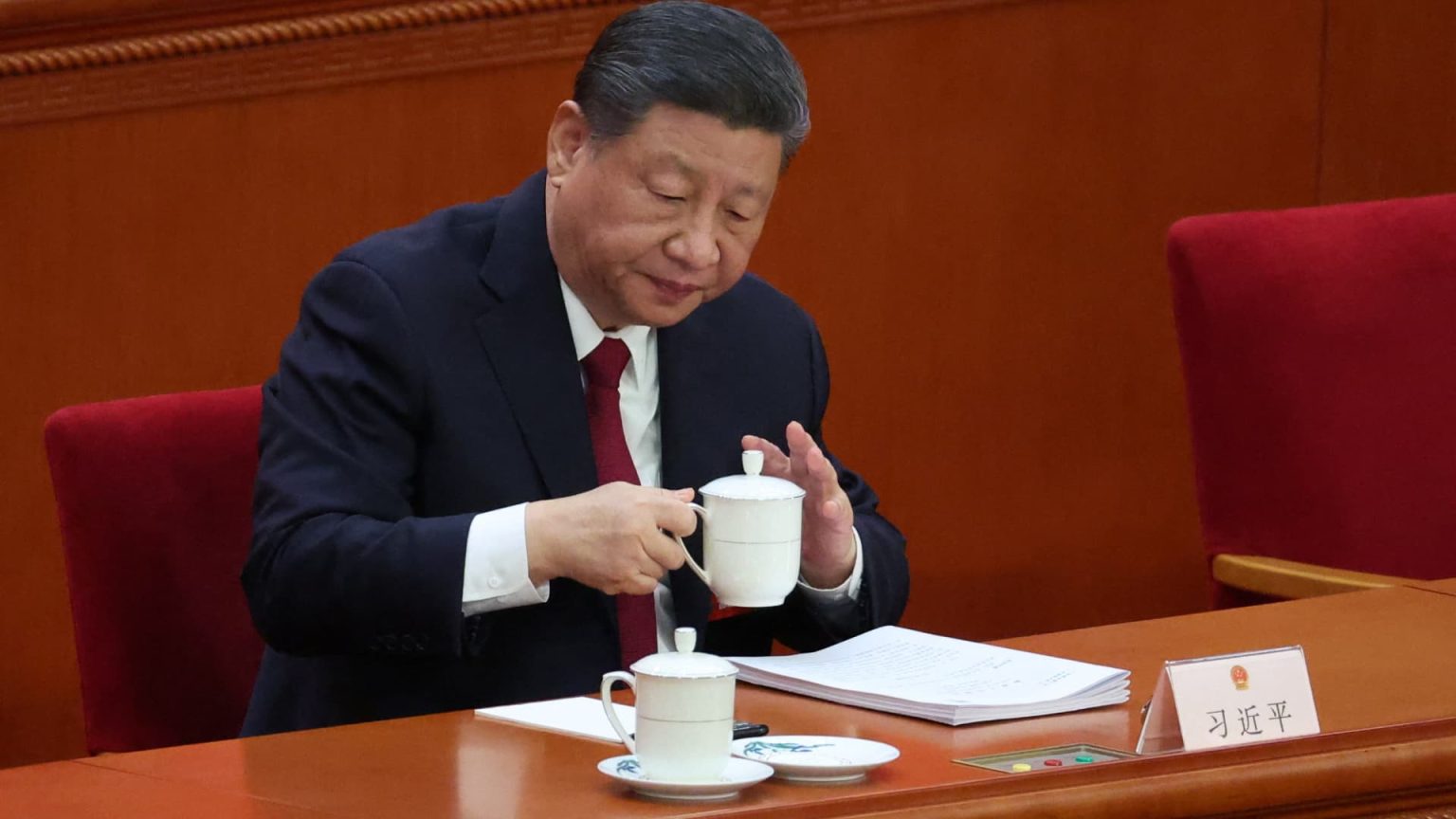Chinese President Xi Jinping is instituting a series of measures to support struggling businesses as part of efforts to counteract rising external economic pressures. This decision comes in the wake of escalating tensions between China and the United States, particularly regarding trade tariffs that have already begun to impact market forecasts. In a meeting of the Politburo, China’s primary political body, officials expressed their commitment to achieve approximately 5% economic growth amid these challenges. The proposed measures include financial assistance and targeted rate adjustments aimed at bolstering the country’s economy.
| Article Subheadings |
|---|
| 1) Overview of Economic Challenges |
| 2) Politburo’s Strategic Response |
| 3) Fiscal Measures and Economic Targets |
| 4) Sector-specific Support Initiatives |
| 5) Future Outlook and Recommendations |
Overview of Economic Challenges
Recent developments in global trade have presented significant challenges for the Chinese economy. Tensions between the U.S. and China have escalated sharply, leading to the introduction of tariffs exceeding 100%. This confrontation has not only strained bilateral relations but has also resulted in major financial institutions revising their GDP growth predictions for China. Analysts have warned that these external shocks could lead to increased volatility in China’s economic landscape.
The ongoing global economic situation has created a particularly difficult environment for businesses operating in China, many of which are struggling to adapt to new trade realities. The intensifying conflict with the United States has raised concerns about future trade policies, compelling the Chinese government to reconsider its strategies to bolster domestic businesses and maintain growth targets.
Politburo’s Strategic Response
In response to the shifting economic landscape, the Politburo, a key governing body in China, convened to discuss strategic measures to support the struggling business sector. The meeting, chaired by President Xi Jinping, signified a renewed commitment to tackling economic difficulties through a multifaceted approach. Officials emphasized the need for immediate actions to assist businesses facing unprecedented operational challenges due to external pressures.
During the meeting, it was resolved that the government would implement various measures, including financial support and adjustments to monetary policies, to alleviate the burden on businesses. According to the readout from the meeting, policymakers are inclined to provide “timely reductions” to interest rates and reserve requirement ratios, actions intended to increase liquidity within the financial system.
Fiscal Measures and Economic Targets
In a noteworthy move, China has increased its deficit target to 4% of GDP as part of a wider fiscal strategy aimed at bolstering growth opportunities. This decision, confirmed in March, allows for expanded capabilities regarding fiscal policy, effectively opening up avenues for significant government spending where necessary. Lan Fo’an, the Finance Minister, emphasized that this shift gives the Chinese government greater flexibility in responding to economic pressures.
Despite this increase in spending power, analysts predict that the Chinese government may take a cautious approach in implementing a large-scale stimulus package, opting instead for targeted support to businesses most affected by tariff impacts. This strategy aims to support domestic spending and drive consumption, particularly among middle- and lower-income groups to foster economic resilience.
Sector-specific Support Initiatives
Specific measures announced include support for exporters seeking to redirect sales toward domestic markets. Given the heightened trade tensions with the United States, local governments and prominent corporations are actively working to facilitate this transition. The Politburo readout underscored the urgency of increasing incomes for lower-income segments and enhancing consumption in service-oriented sectors.
Additionally, the message conveyed a strong emphasis on leveraging technology, particularly artificial intelligence, to drive future growth. As the digital economy expands, the integration of new technologies into traditional businesses is seen as a vital pathway for enhancing productivity and maintaining competitiveness in both domestic and global markets.
Future Outlook and Recommendations
Looking forward, the landscape for the Chinese economy remains uncertain. The Politburo’s meeting demonstrates a commitment to systemic policy adjustments designed to mitigate negative external impacts. However, experts caution that effective implementation will be crucial, as well as the need for ongoing assessments of emerging economic conditions.
Despite the optimistic framing, analysts such as Zhiwei Zhang, the president and chief economist at Pinpoint Asset Management, argue that time will be necessary for policymakers to evaluate trade shocks and adapt measures accordingly. The government’s approach may rely on ongoing monitoring to determine the optimal timing and scale of any interventions, ensuring that businesses are fully supported during challenging periods.
| No. | Key Points |
|---|---|
| 1 | China’s economy faces increased external shocks, primarily due to escalating U.S.-China trade tensions. |
| 2 | The Politburo has proposed targeted financial measures to support struggling businesses amidst these challenges. |
| 3 | China has raised its deficit target to 4% of GDP, allowing for more room in fiscal policy. |
| 4 | Initiatives to support domestic consumption and technology integration have been emphasized in recent policies. |
| 5 | Future economic strategies will require careful monitoring and flexibility to adapt to ongoing trade dynamics. |
Summary
In summary, the Chinese government’s proactive approach to countering economic challenges illustrates a commitment to stability amidst growing external pressures. The measures discussed during the Politburo meeting reflect an awareness of the complexities faced by businesses impacted by shifting trade policies. As authorities work toward achieving their growth targets, the balance between fiscal stimulus and targeted interventions will be essential for fostering a resilient economic environment.
Frequently Asked Questions
Question: What measures is China taking to support struggling businesses?
China is implementing targeted financial measures, including reductions in interest rates and adjustments to reserve requirements, to provide necessary support to struggling businesses.
Question: What is the new deficit target set by the Chinese government?
The Chinese government has raised its deficit target to 4% of GDP, allowing for increased flexibility in fiscal policy to support economic growth.
Question: How does the Chinese government plan to enhance domestic consumption?
The government is focusing on increasing incomes for middle- and lower-income groups and promoting service consumption while integrating new technologies into traditional industries.


